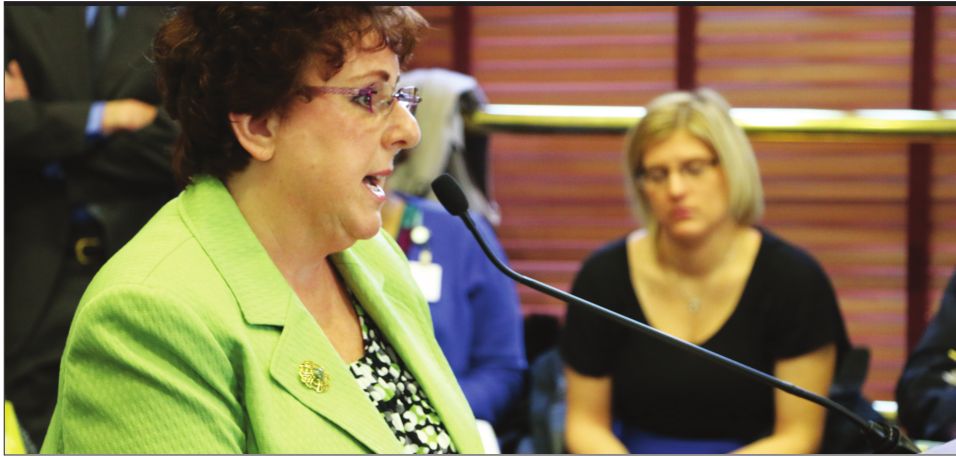
 LETTERS
LETTERS
We welcome letters. Please include your full name, address and telephone number. We edit all letters. Send them to [email protected].
HELP OUT OF REACH Thank you to Toni Hoy for all her hard work and efforts in the struggle to prohibit the Department of Children and Family Services from making custody relinquishment a condition of paying for residential care (“Illinois may end ‘planned abandonment,’” April 3, Patrick Yeagle). Why does DCFS have to always go out of their way to deny services for these kids, even before they are adopted? Every child they take into their care has been neglected, some worse than others. Some have been physically abused by beatings. Others were physically abused before they were even born, with drug and alcohol abuse. The damage done to their forming neurological pathways will affect them the rest of their lives but because you don’t see the physical bruises or broken bones they refuse to give these kids the help they need. They could not do their job without us parents, but they turn their backs on us when we and the children really need them by saying they “offer this and that” for the needs of the kids but then make it almost impossible for us to get the “this and that” when the time comes. Why say that something is available for the kids, but then make it next to impossible to qualify? Cindy Backstein Springfield
BAD BUSINESS MODEL Recent advertisements incite farmers to speak up for the Illinois livestock industry. The ads claim the economic benefit of consuming Illinois meat and dairy but fail to mention intensive confined animal feeding operations or CAFOs. The sociological, economic and environmental externalities CAFOs create are supported by decades of research.
Recently University of Illinois examined the “legitimacy” of CAFOs. Researcher Peter Goldsmith admits “as animal production sites grow larger they create more problems and intense controversy surrounding CAFOs incites strong local public participation.”
Goldsmith revealed that “70 percent of the individuals opposed the proposed facilities and 89 percent of statements of local residents and other interested citizens challenged the legitimacy of proposed CAFOs.” Only “5 percent of residents supported CAFOs and the majority of positive comments were supplied by outside consultants for the operator and government officials.” Goldsmith correctly acknowledged that Illinois law fails to include the Illinois Department of Health, Illinois Environmental Protection Administration and Illinois State Geological Survey as part of an unbiased government siting team.
Goldsmith’s study was biased, however, when it opined that the Illinois Department of Agriculture “attempted to
balance the interest of the livestock industry with the interests of rural residents” in Illinois law. In truth, more stringent language was stripped when industry lobbyists influenced legislators. In reality, even where county boards have voted no in the nonbinding public hearings, communities organize in high numbers to protest them, and inappropriate sites are chosen to locate them. The Illinois Department of Ag habitually acts as a promoter and protector of CAFOs and permits them on all counts because Illinois livestock siting regulations prohibit local county control.
This research suggests that CAFOs are an illegitimate business model unacceptable by the public no matter how much PR the industrial livestock lobby peddles. There is a grave lack of trust in the legitimacy of the CAFO model, the siting process and the state and federal regulations that should control them.
Now let’s revisit those animal agriculture advertisements. In truth, if the meal you consumed yesterday came from an Illinois CAFO; you might have decreased economic vitality, property values, air and water quality and more because CAFOS aren’t a good fit for Illinois norms of rural life, and Illinois citizens are unprotected from wherever they locate. Karen Hudson, farmer Illinois Citizens for Clean Air and Water Elmwood, Illinois